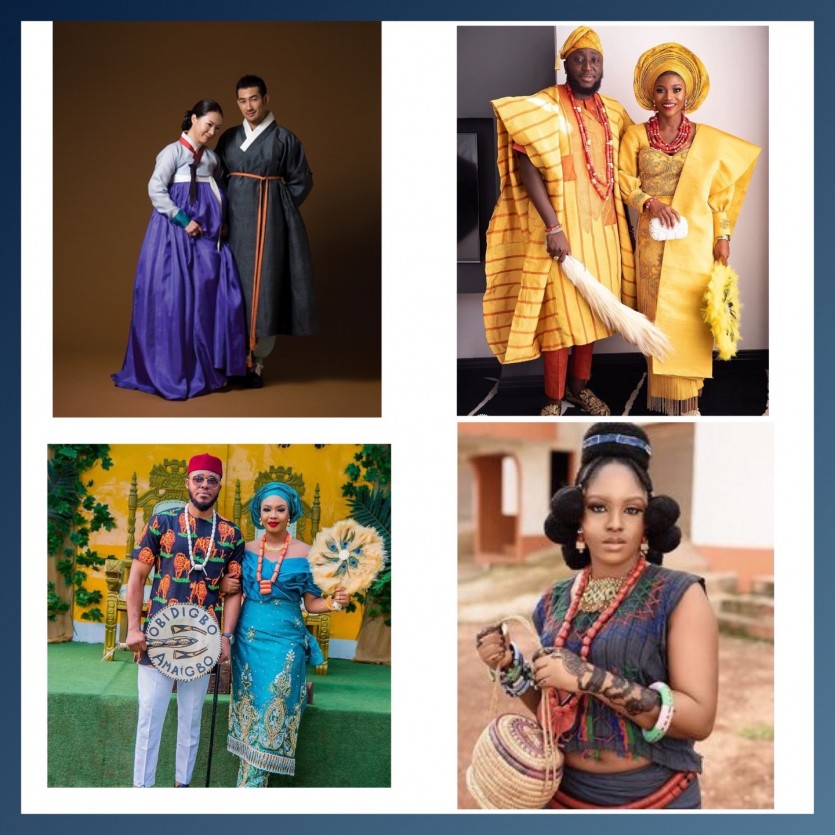Language & Culture Preserving Tradition: Clothing as an Identity
페이지 정보

본문
In South Korea, traditional attire is known as Hanbok. It is a graceful and vibrant clothing style that has evolved over centuries. Hanbok represents the cultural identity and pride of the Korean people. The design and colors of Hanbok vary based on the wearer's age, gender, and social status. It is commonly worn during traditional ceremonies, festivals, weddings, and other special occasions. Hanbok reflects the values of modesty, harmony, and respect for tradition, highlighting the importance of maintaining cultural heritage in South Korean society.
In Nigeria, traditional attire is diverse and varies among different ethnic groups. Each ethnic group has its unique clothing styles, fabrics, patterns, and accessories. For example, the Yoruba people have the "Aso-oke" fabric, often used to create intricate and colorful outfits, while the Igbo people are known for their "George" fabric and distinctive attire. Traditional attire in Nigeria is worn during cultural festivals, weddings, naming ceremonies, and other celebrations. It serves as a way to showcase pride in one's ethnic heritage, strengthen community bonds, and preserve cultural traditions.
The importance of traditional attire in both South Korea and Nigeria extends beyond aesthetics. It is a way to pass down cultural knowledge from one generation to the next, reinforcing a sense of identity and belonging. Traditional attire also serves as a symbol of cultural unity, fostering a sense of pride and promoting cultural diversity. Additionally, traditional attire often attracts attention and interest from tourists, contributing to the promotion of tourism and cultural exchange.
Preserving and promoting traditional attire is crucial for the cultural heritage of both South Korea and Nigeria. It not only helps to maintain a connection to the past but also allows for the appreciation and understanding of diverse cultural traditions. By embracing and celebrating their traditional attire, these nations can continue to nurture and showcase their rich cultural legacies to the world.
Photo Credit: pinterest.com
- PrevVisit the Kim You-jeong Literature Village! 23.05.31
- NextAlmsgiving experience in South Korea! 23.05.21
댓글목록
There are no registered comments.

